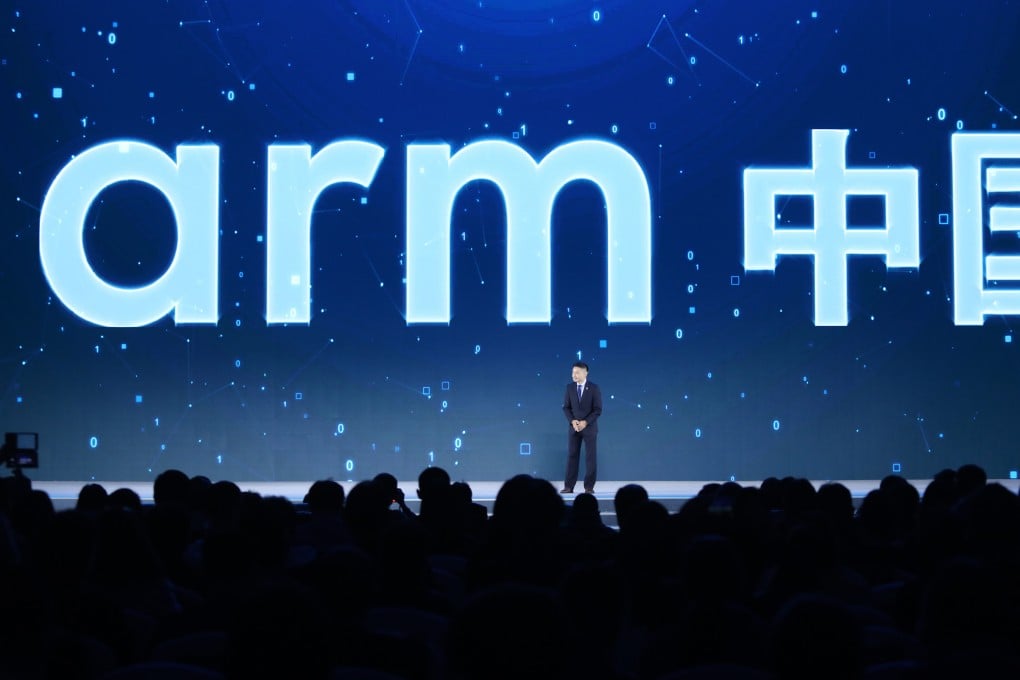UK chip firm Arm wrestles for control of Chinese joint venture amid public boardroom spat
- Arm owns 49 per cent of the China joint venture, and investors led by Chinese equity fund Hopu Investment hold the rest
- The power tussle has emerged at a delicate time for Arm amid rising tech tensions between the US and China and Washington’s campaign against Huawei

UK chip designer Arm is wrestling for control of its Chinese joint venture after its decision to oust the unit’s leader was challenged publicly by Arm China this week.
SoftBank-owned Arm, which specialises in chip design software and whose clients include Huawei Technologies, said earlier this week that the board of its Chinese joint venture had agreed to remove its executive chairman and chief executive officer Allen Wu and had appointed two company vice-presidents to lead as co-CEOs in the interim.
Arm owns 49 per cent of the China venture, and investors led by Chinese equity fund Hopu Investment hold the rest.
Arm said the decision to remove Wu was taken at a board meeting on June 4 following an internal investigation that showed he “put at risk” the interests of the company’s shareholders.
“Following a whistle-blower complaint and several other current and former employee complaints, an investigation was undertaken by Arm Ltd.,” Arm said in the statement jointly issued with Hopu. “Evidence received from multiple sources found serious irregularities, including failing to disclose conflicts of interest and violations of the employee handbook.”
However, Arm China later rejected this claim and said in a statement posted on its official social media accounts on Wednesday that Wu continues to serve as its CEO and has carried out his duties in accordance with “relevant laws and regulations.”
Arm China is “an independent legal entity registered according to Chinese law”, which is currently operating as normal and will continue to serve its clients and industry partners in China, it noted.
